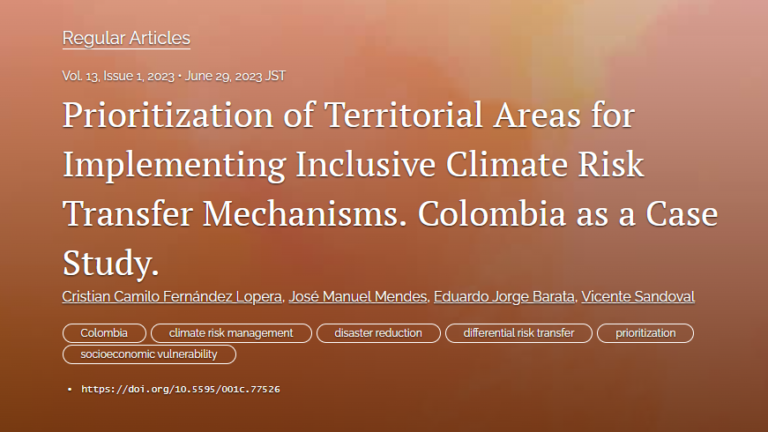Prioritization of Territorial Areas for Implementing Inclusive Climate Risk Transfer Mechanisms. Colombia as a Case Study
The methodologies for prioritizing populated areas regarding the implementation of risk transfer schemes are still limited due to the exclusion of social components. This research proposes a methodology for prioritizing territorial areas when implementing Climate Risk Transfer Mechanisms (CRTM) using the differential risk transfer approach and considering three Colombian regions as a case study. In order to achieve this, we carried out a
literature review to identify existing related methodologies. We targeted components such as gender, ethnicity, poverty, exposure and governance. Workshops were also conducted to generate a multisectoral agreement concerning the variables to be included in the multicriteria analysis. Subsequently, we produced a ranking system applying the criteria to 12 departments both with and without Climate Change (CC) conditions. The results of our investigations showed that there are no records of methodologies for prioritizing areas that include variables of vulnerability and governance. The CC rankings indicated modifications to the previous rankings. The prioritized departments thus highlighted were La Guajira, Bolívar, Chocó, Magdalena, San Andres and Sucre. This research applied differential risk transfer to successfully improve the accuracy of the risk transfer mechanism and provides a methodological guide for optimizing technical and financial resources in the decision-making process for CRTM. This methodology is especially useful for territorial areas with low technical and economic capacities and can be replicated worldwide since the data is available through open access.


